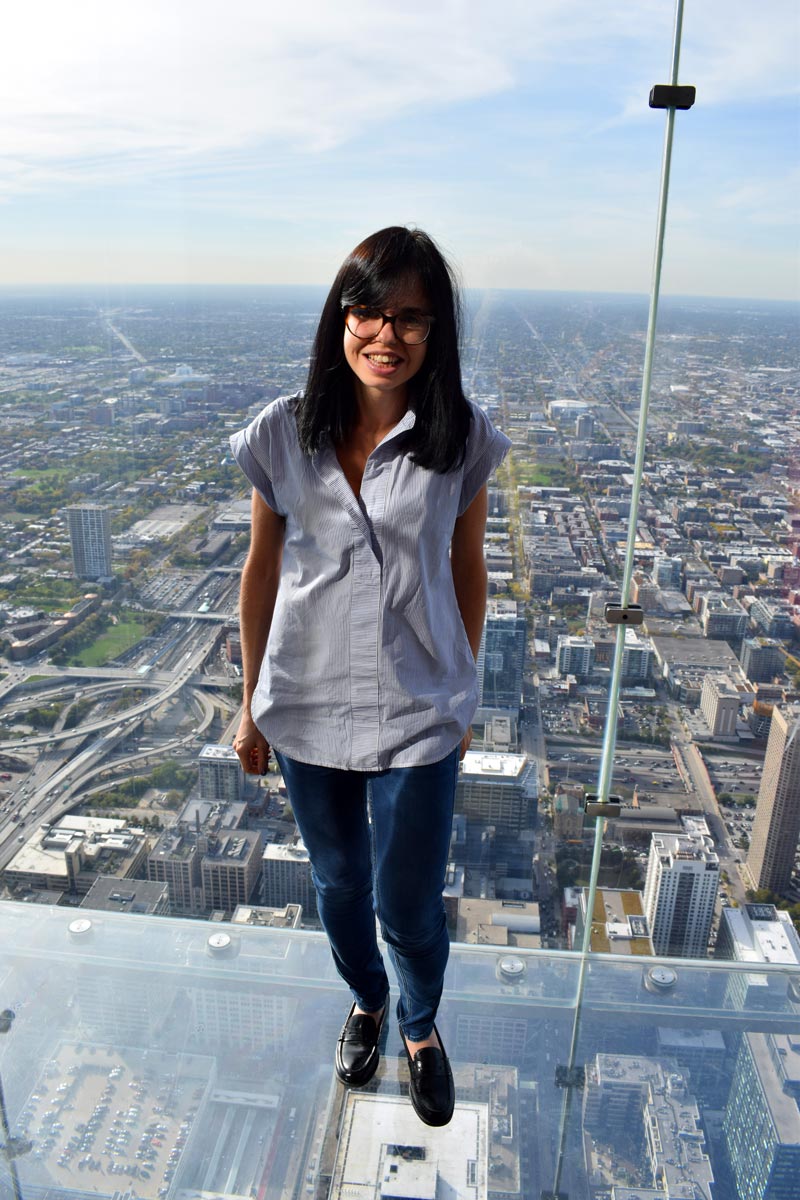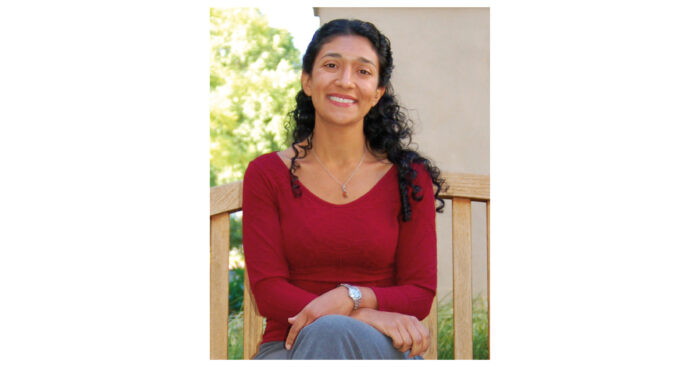
Wikimedia Commons
British physicist Jessica Wade has a network of colleagues who suggest the names of notable female researchersWikimedia CommonsIn October 2018, Canadian scientist Donna Strickland, from the University of Waterloo, Canada, became the first woman in 55 years to win the Nobel Prize in Physics, for her work on generating high-intensity, ultra-short laser pulses. She shared the prize with two other physicists. Interestingly, it was easier for Strickland to earn the recognition of the Nobel judges than Wikipedia, which until after the awards had no profile for the physicist among its 5.8 million pages in English. In March 2018, seven months before the prize winners were announced, a draft profile page for the researcher written by an unidentified internet user was deleted by Wikipedia editors because the references given did not justify her having a page—her biography on the Optical Society website was deemed insufficient. A page was quickly created on October 6, four days after Strickland was awarded the prize, and even included references to a paper she wrote in 1988.
Strickland’s case is typical of a long-standing issue highlighted by many female researchers: underrepresented in many scientific fields, women are stereotyped as less capable than men and often need to work harder to receive public recognition for their work. Concrete evidence supporting this assertion has resulted in a number of initiatives aimed at combating gender bias, one of which is led by British physicist Jessica Wade, 30, and targets Wikipedia specifically. A postdoctoral researcher at Imperial College London who specializes in polymers, Wade began writing Wikipedia biographies for female researchers in 2017, after discovering that 90% of the encyclopedia’s editors are men and only 17% of profiles relate to women. “That is an overall percentage. In terms of biographies of scientists, the proportion is even smaller,” she says.
She has so far published more than 400 biographies, raising awareness of contributions such as those of American climatologist Kim Cobb, 45, who leads a group that studies the effects of climate change on the Pacific Ocean, and Spanish biochemist Gertrudis de la Fuente, from the Complutense University of Madrid, who specialized in enzymology and toxicology and was well known in Spain. Her profile was approved five months after her death at 95 years of age.
Wade uses a set of criteria to choose which scientists to profile—they must have earned recognition in academia and have a level of notability among their peers. Wade also participates in groups that promote inclusion and diversity in science, such as 500 Women Scientists, which is composed of more than 2,000 female researchers from over 100 countries. She is one of a number of scientists working as a “Wikipedian in Residence”—people who facilitate Wikipedia entries related to their institution or field. She maintains frequent contact with these networks, whose members propose new profiles, debate the importance of those recommended, and suggest references. “The final texts are reviewed by the Wikipedia editors, who do a great job,” says Wade. She consults researchers in advance to see whether they are interested in having a page on the online encyclopedia.
Solitary quest
Jessica Wade’s mission was instigated by personal experience. When she began her PhD thesis at Imperial College on macromolecules involved in the emission of LED light, she was the only woman in her research group. “I was surrounded by testosterone and started to feel very lonely,” she says. “I realized that we need to encourage more women to participate in science.” As well as creating Wikipedia profiles for female researchers, she also gives talks at schools and universities to stimulate interest in science among girls and young women.
Wade has not yet profiled any Brazilian scientists, but her efforts have been recognized in the country. “Science is still an area of power that is dominated by men. Initiatives like Jessica Wade’s, which highlight the work of female scientists, are essential to making girls aware that science is a career possibility for them,” says economist Hildete Pereira de Melo, a researcher at Fluminense Federal University and author of the book Pioneiras da ciência no Brasil (Pioneers of science in Brazil), released in 2006. Conceived in partnership with Ligia Rodrigues, from the Brazilian Center for Physics Research (CBPF), the book, which is being updated and relaunched this year, contains profiles of scientists who have conducted essential research in fields such as physics, chemistry, agronomy, and botany. Some are known by the general public, such as agronomist Johanna Döbereiner (1924–2000), psychiatrist Nise da Silveira (1905–1999), and biologist Ruth Nussenzweig (1918–2018). Others are rarely mentioned, such as botanist Graziela Maciel Barroso (1912–2003), who was a professor at the Federal University of Rio de Janeiro (UFRJ), the Federal University of Brasília (UNB), and the University of Campinas (UNICAMP). She was one of the most prolific plant taxonomists in Brazil—a number of Brazilian plant species have been named after her, including Dorstenia grazielae, Diatenopteryx grazielae, and Bauhinia grazielae. “She was internationally renowned in the scientific world, but few people among the general public know about her,” says Hildete Pereira de Melo. “We need to publicize the work of these researchers and show girls that a career in science is not a male privilege,” she adds.
Female scientists who now have profiles on Wikipedia
These are just some of the researchers of various nationalities who have Wikipedia profiles thanks to the efforts of British physicist Jessica Wade
